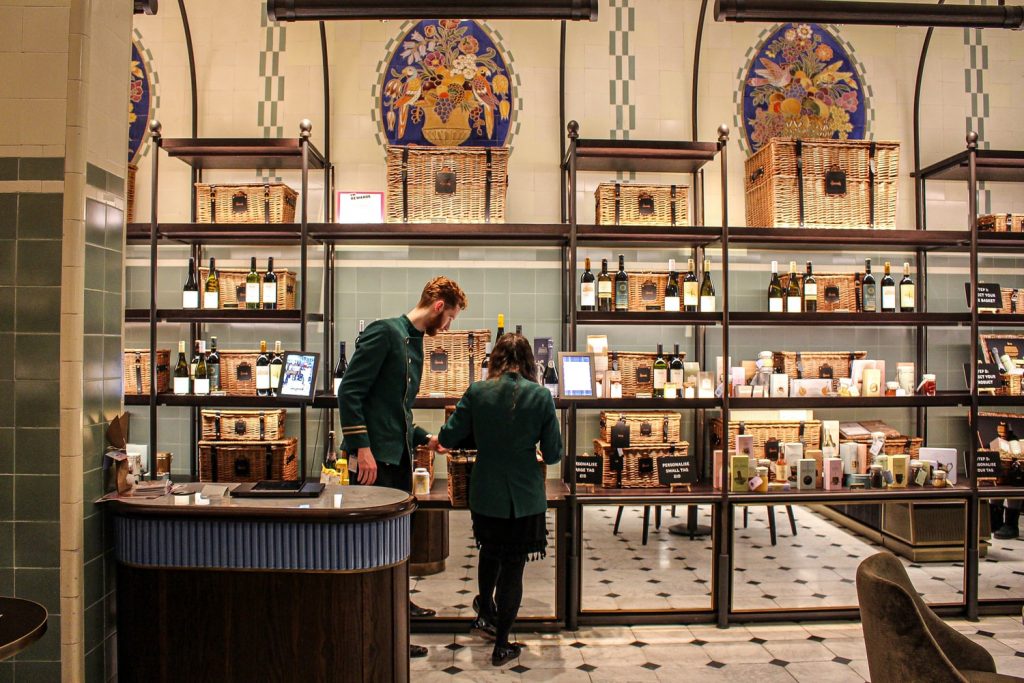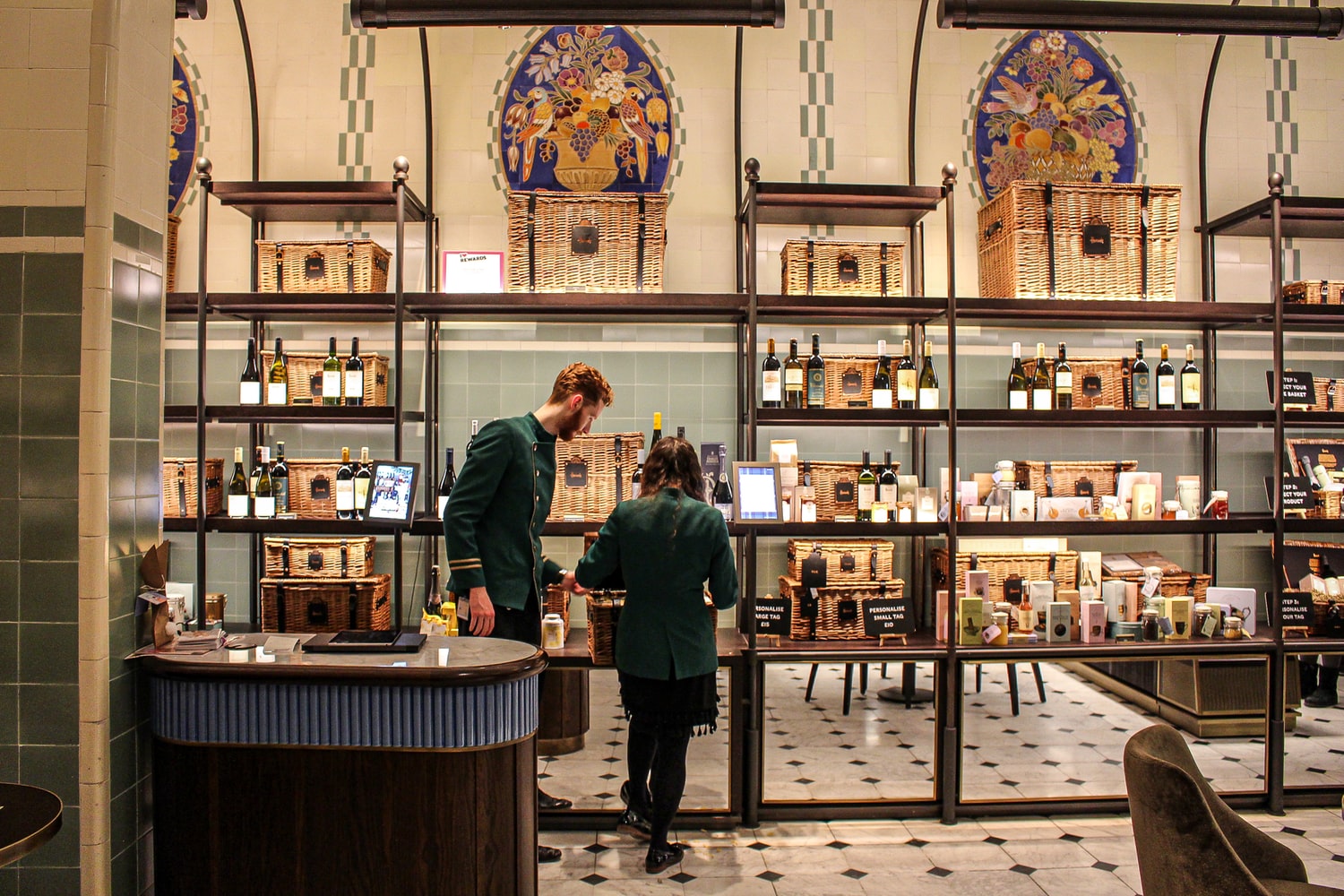The winter of 2020 saw me working from home with Harrods, drowning in a sea of readings and juggling with my deadlines at LSE. Let’s take a trip down memory lane to appreciate the significance of my journey, shall we?
 Following my full-time employment with Harrods during my gap year, I was fortunate enough to have my contract extended whilst studying at LSE. In one word? Demanding, but also rewarding. Thankfully, I had an amazing team of supportive advisors and managers, that really allowed me to develop various skills and knowledge, ultimately, improving my work ethic. Subsequently, being one of the youngest team members, I always felt appreciated, and the team were extremely understanding with my academic obligations.
Following my full-time employment with Harrods during my gap year, I was fortunate enough to have my contract extended whilst studying at LSE. In one word? Demanding, but also rewarding. Thankfully, I had an amazing team of supportive advisors and managers, that really allowed me to develop various skills and knowledge, ultimately, improving my work ethic. Subsequently, being one of the youngest team members, I always felt appreciated, and the team were extremely understanding with my academic obligations.
 Personally, I think that is one of the most important things when you have a part time job as a university student, such that your employer should always be understanding of your university obligations and proactive in your career development, even if you may not stay in the role forever! From experience of negotiating gestures of goodwill following complaints, to my continued training, I began to develop skills such as interpersonal, persuasion and influencing abilities that might not have been otherwise gained during my studies. I am extremely grateful to Harrods in all the training they have provided, not just work related but how one should write/speak/act and compose themselves whilst liaising with a discerning international clientele.
Personally, I think that is one of the most important things when you have a part time job as a university student, such that your employer should always be understanding of your university obligations and proactive in your career development, even if you may not stay in the role forever! From experience of negotiating gestures of goodwill following complaints, to my continued training, I began to develop skills such as interpersonal, persuasion and influencing abilities that might not have been otherwise gained during my studies. I am extremely grateful to Harrods in all the training they have provided, not just work related but how one should write/speak/act and compose themselves whilst liaising with a discerning international clientele.
I worked four days a week at Harrods. Due to pandemic, I had been working from home since I was a Customer Loyalty Advisor. So, any complaints, product queries, online ordering, delivery issues, positive/negative feedback, I would be able to assist. I continued to work through the pandemic, ploughing through the customer queries regarding their dismay in terms of coming to grips that they will not be able to shop in-store. *This usually entailed our clients asking when the pandemic was going to be over? Sike. Little did we know COVID-19 was going to hang around for so long*

The introduction of our Virtual Concierge Service combatted this and it was lovely to be able to allow my clients to get that same luxury customer service experience that they received in-store. This one-to-one platform permitted customers to enter their contact details and a personal shopper would contact them regarding any purchases they wanted to make! Hitherto, everything was smooth sailing, work was not too busy as the effects of the pandemic was a having its toll against luxury retail, and university was pretty calm.
Well, that being said, I spoke too soon! The busiest season of the year came round way too fast for both a Harrods Customer Loyalty Advisor and an LSE student like me: with preparation for Michaelmas term summative assessments and the Christmas sales period. I’m hoping you’re not like me, who gets into a frenzy whenever I hear the word summative, which is a lot of if you’re an LSE student.
How did I manage to remain productive during the Christmas Period of 2020?
The first few weeks proved to be challenging, to say the least. With yet another lockdown, and various deadlines approaching, the Christmas period was a test for me to see whether I had really learnt to manage my time well. Soon, I came to realise my method of work wasn’t as productive and efficient as it should be. It was then I was introduced to the Quadrant Method by my Father.
My tasks were split up into the following:
- Quadrant 1: Urgent and important
- Quadrant 2: Not urgent but important
- Quadrant 3: Urgent but not important
- Quadrant 4: Not urgent and not important
I would usually spend each night prioritising my daily tasks into these four quadrants for the next day to ensure I remained productive throughout the week. Obviously, my summative and formative essays would be in quadrant 1 or 2, depending on their deadlines. Likewise, I would place things like booking a dentist appointment in quadrant 3 and checking social media in quadrant 4. Of course, the quadrant method is something that worked effectively for me, but there are loads of other ways in which you can manage your time effectively! Something that works for me, may not always work for you! But that’s why it’s important to explore and experiment with other options at the start of term to figure out which works best for you.
Let me know in the comments section if you try the quadrant method and whether or not it worked for you! Or feel free to share your method in staying productive whilst balancing university life and a part time job.
Tune in next month where I’ll be blogging about my daily routine and why I decided to leave Harrods in February 2021!






Insightful read – thanks for posting! I’ve also come across the quadrant method this year and similarly found its increased my productivity by prioritising things.
Looking forward to the next post!
Thank you Ismail!
Interesting read, might have to give this method a try!
Thank you! Definitely give it a try.